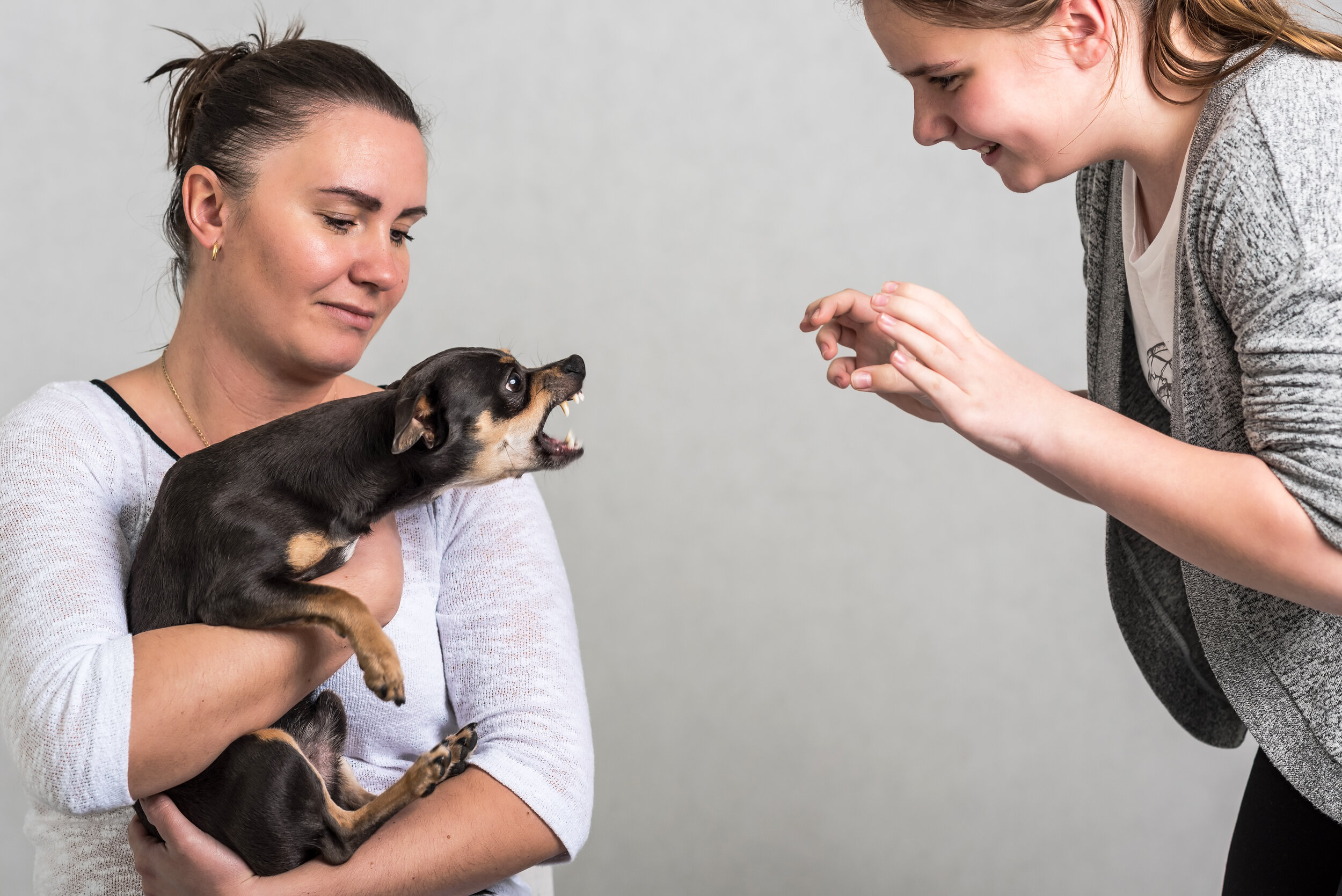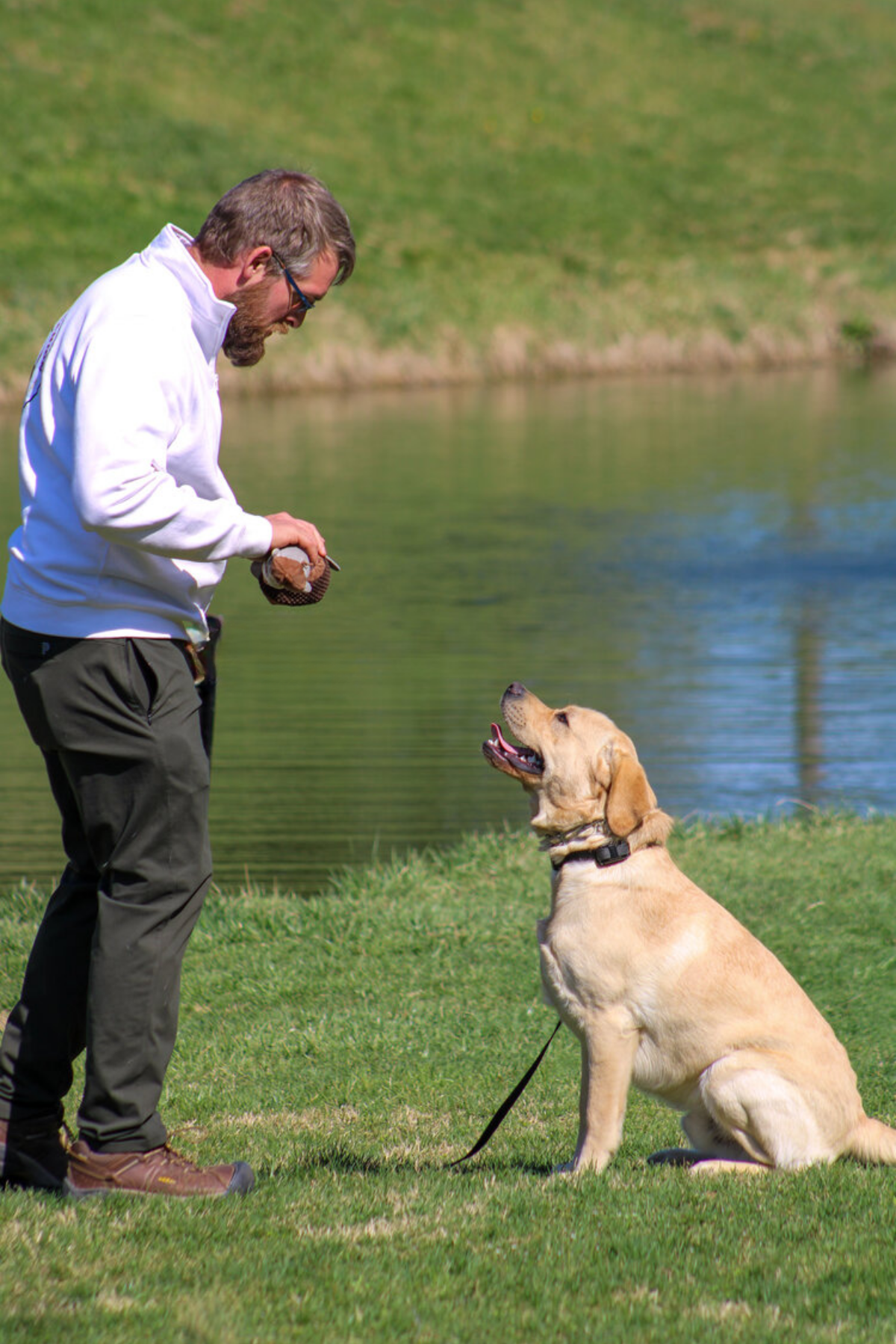How Do I Stop My Dog From Being Protective
I have a jealous dog or a dog who tries to protect me
This is something I hear a lot from clients. You have a dog that growls, lunges, barks, maybe even bites strange people when they get close to you. It’s easy to think that the dog is trying to protect you from the scary invader. This may be the case, but most likely, it isn’t. Most likely, your dog is scared, and has associations of being anxious when they are with you.
It’s not so much, “I have to protect mom or dad”
as it is, “When I’m with mom or dad, I need to protect myself”.
I see police dogs and trained protection dogs protect their owners
Certainly dogs can be trained to protect their owners and their family. Certainly dogs are bred for this purpose. But this is only reliable when coming from a confident dog who trusts their owner. Often, we see anxiety behavior from dogs’ genetic predispositions. Retrievers tend to be more clingy to their owners when they are anxious. Collies and heelers struggle with nipping at heels and legs when they are scared. Shepherds often resort to protective behavior a little more quickly than other breeds when they are nervous about a situation. When a dog is nervous and doesn’t know how to behave in the situation, they tend to resort to what their genetics tell them to do, and if that is successful, it gets reinforced. If it gets reinforced, not only will the behavior repeat, but the anxiety that created it will be reinforced also, creating more anxiety and stronger behavior. But anxiety laden protective behavior isn’t desirable. It isn’t clean. It isn’t trustworthy. It’s a liability. It’s making your dog anxious.
You don’t want an anxious dog
Even if you think the behavior is desirable. Your dog shouldn’t have to spend its entire life nervous about every new person they encounter. That’s not a great life.
So how do we fix it? We have to change the relationship. We have to replace the relationship where the dog feels like when they are with you, they have to fend for themselves with a relationship where they trust you as a leader and can be confident that you will protect them. We’ll achieve this through structures at home, becoming aware of how your dog sees resources in the house (food, toys, treats, affection), and how we can be sure they know those come from you. And then, we will train. We will teach your dog that when they are nervous, the behavior they think they need to exhibit (running, clinging, barking, lunging, biting) isn’t necessary, and that listening to you keeps them safe! We want to interrupt the cycle of the anxious behavior reinforcing the anxiety by asking for new behaviors, behaviors that teach them to trust you.
We also want to play tug to show them where these genetics are acceptable to help alleviate the anxiety of not knowing how to be what their genetics tell them to be, and to build their confidence by encouraging the behavior in an appropriate setting.
If you want a dog that is trained to protect you or your family, we can work on that, depending on the dog. But it’s simply not something you can do with a dog used to acting out of anxiety.
Protection requires a dog with confidence!
And this confidence is best built through play, mainly tug. So start playing if you want your dog to be protective in a healthy way. Learn more about play here:
https://www.thetrustedcompanion.com/thetrustedcompanionblog/play-why-its-important-and-how-to-do-it












